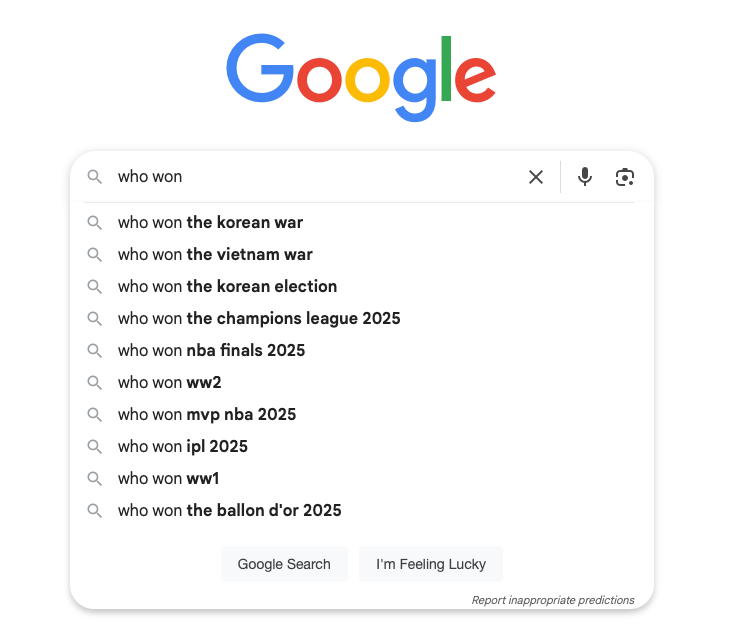Most people think reading is passive.
They think readers just sit down with our text and take it in–word by word, line by line.
They imagine reading to be like sitting in the back seat of a moving car, watching the trees pass by the window.
But they're wrong.
Your reader's brain isn't simply watching the words pass by, like trees passing by the window of a moving car.
It acts more like Google's autocomplete, anticipating the next word before it arrives.
Writers who understand this secret make it IMPOSSIBLE for their text to be put down.
Start typing "Who won the" in Google's search bar.
Watch what happens:

Predictions appear instantly, depending on who you are–e.g., If you're in America, the wars and sports might be different. Similarly, the predictions of each reader will vary, depending on their background and experience. That's why it's important to know your reader.
Your reader's brain does the exact same thing with every sentence:
He sang...
What comes next?
...a cigarette makes no sense.
...the lottery numbers could work, depending on the context.
...a song is the more obvious guess.
That's the brain's autocomplete at work.
But here's where it gets powerful for writers...
Proof this Works
Here's a simple test that reveals the secret. Read this: